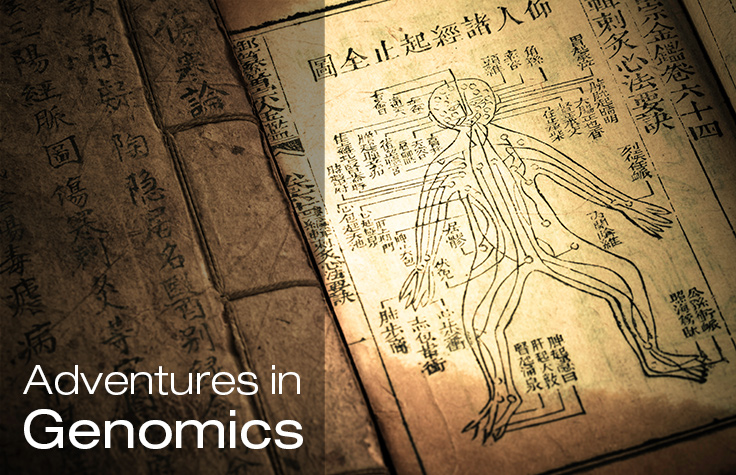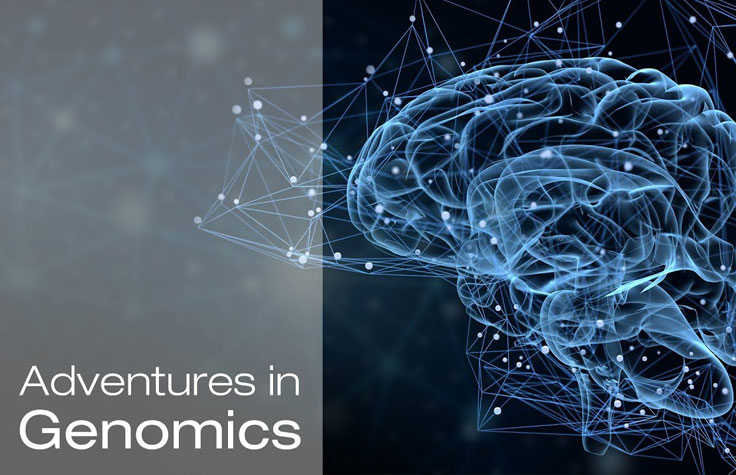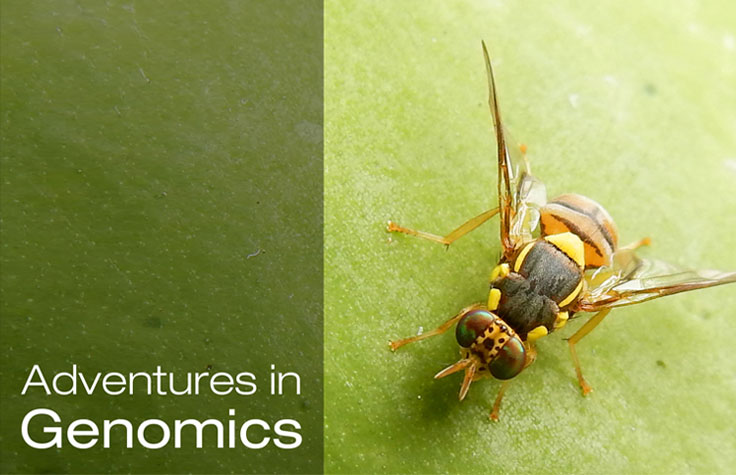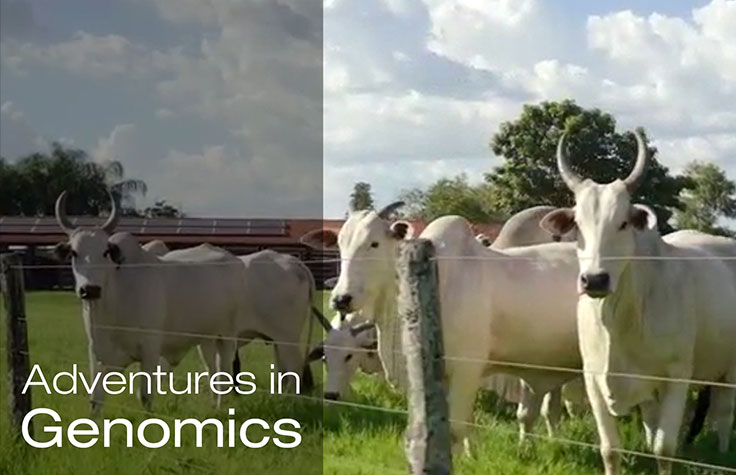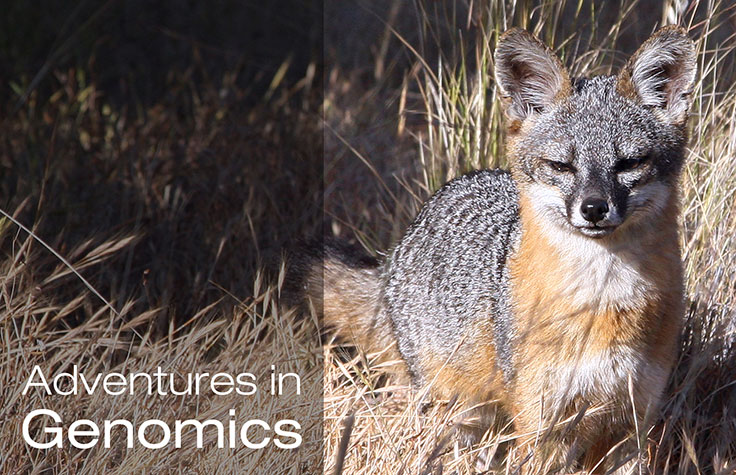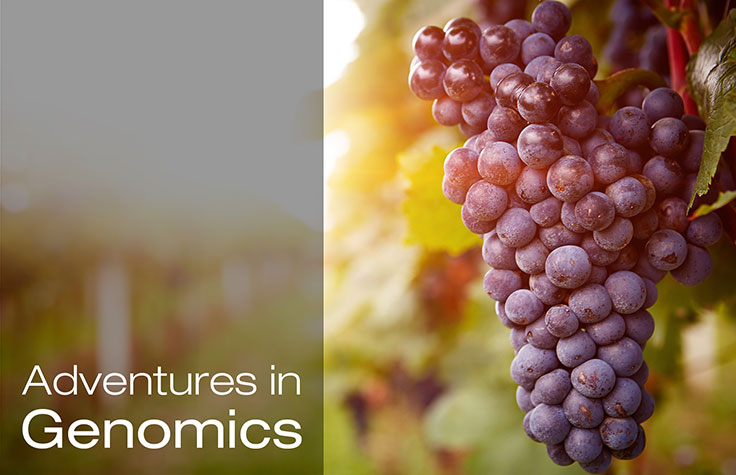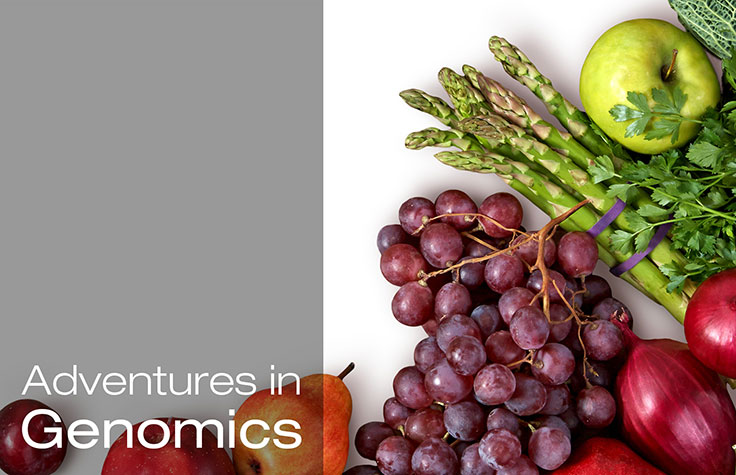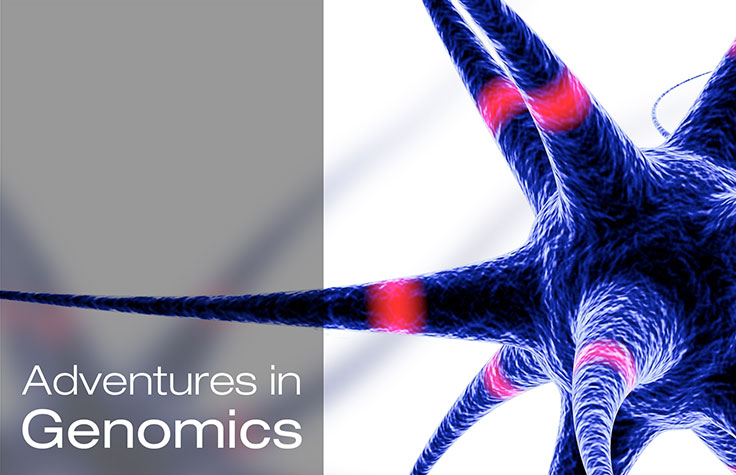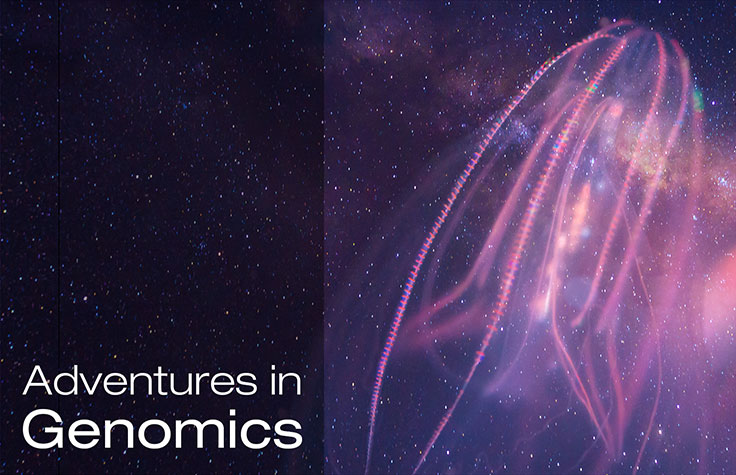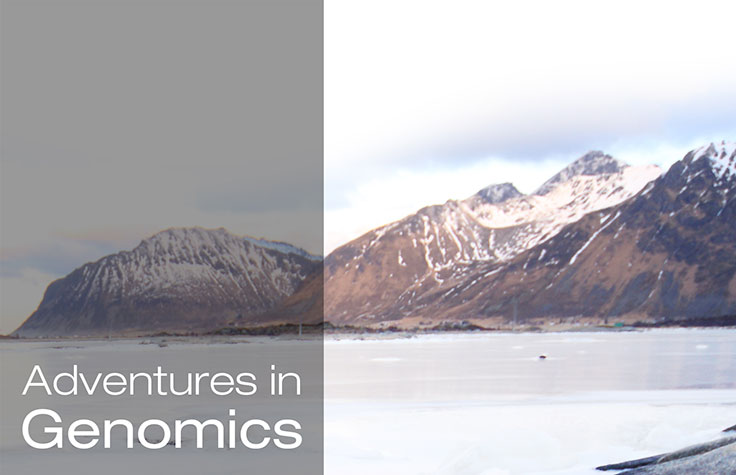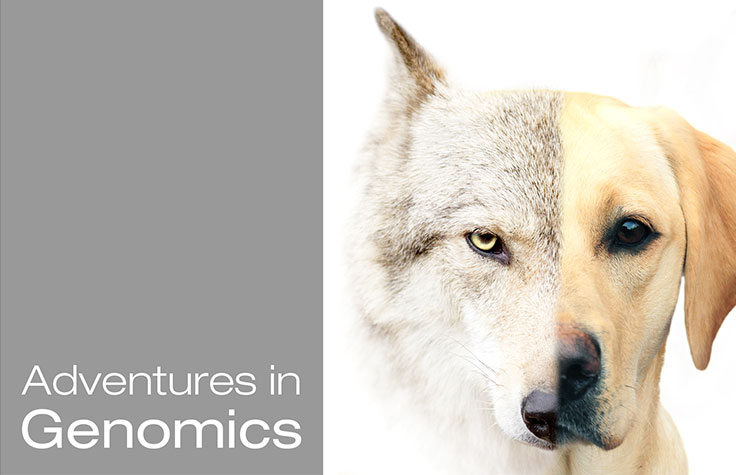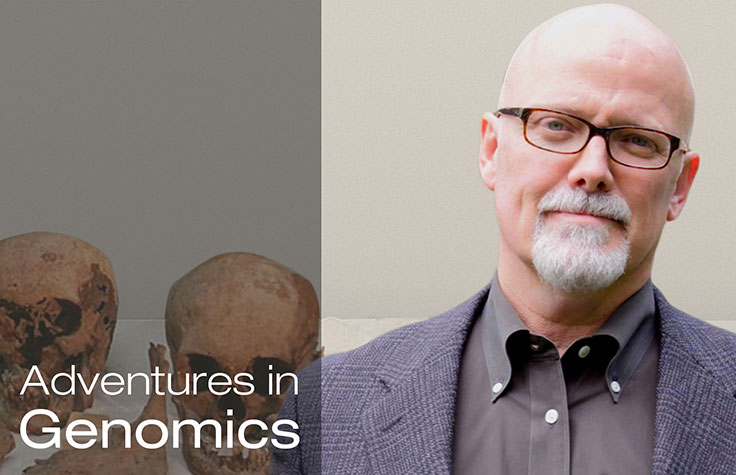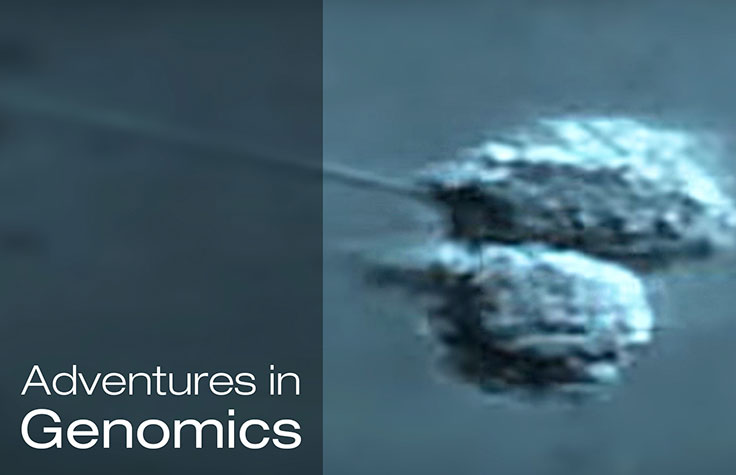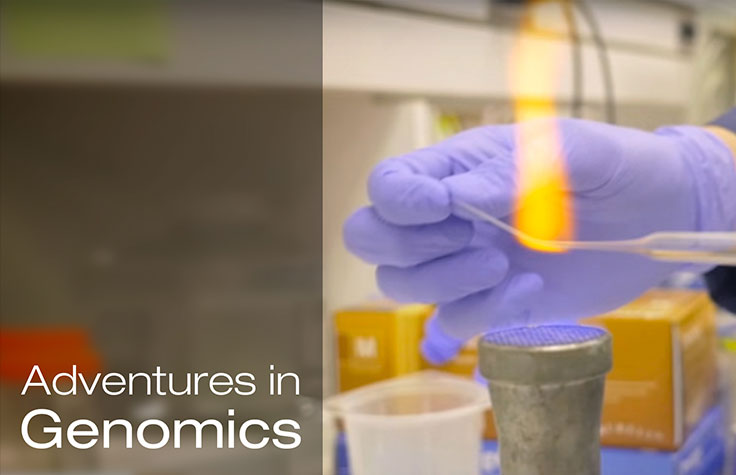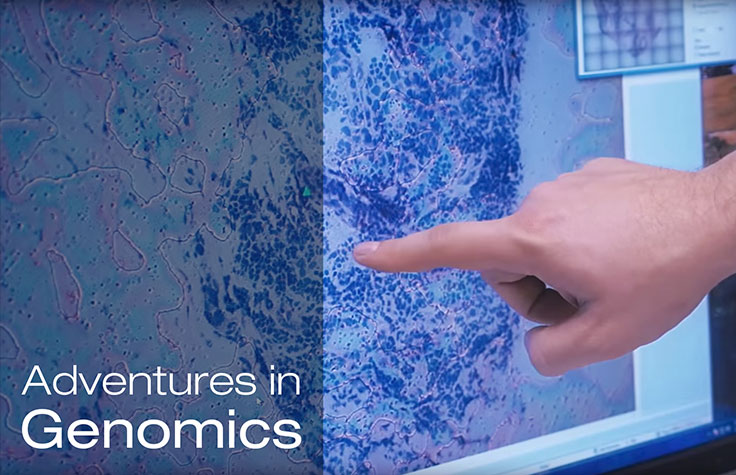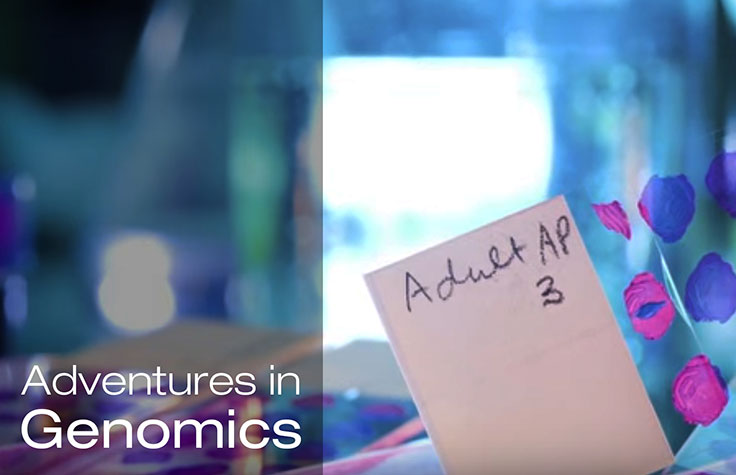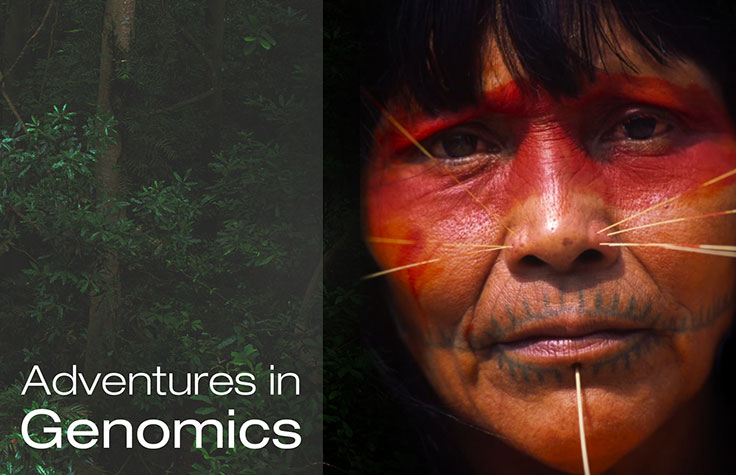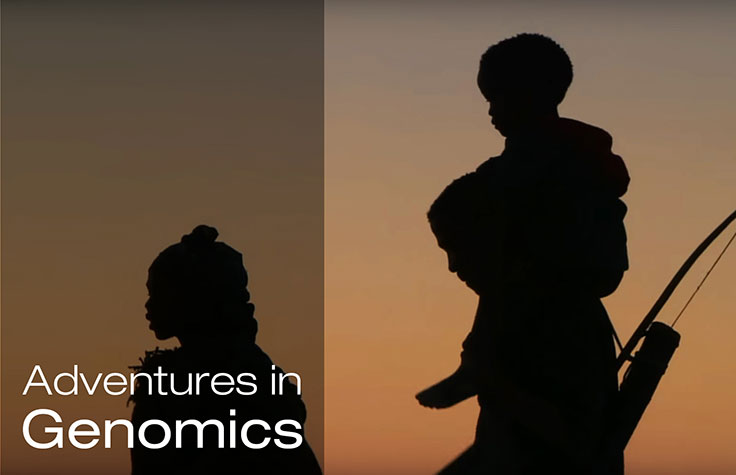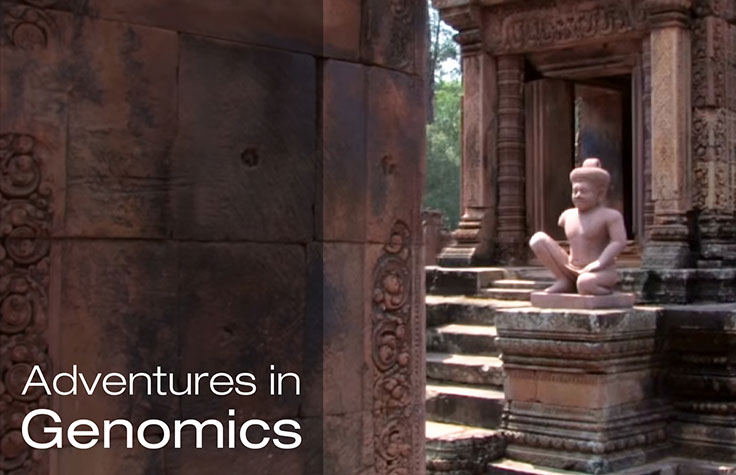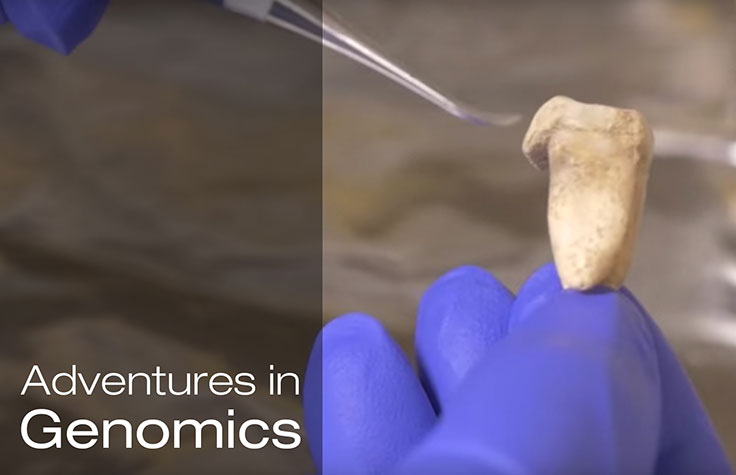Adventures in Genomics
Adventures in Genomics
The Adventures in Genomics video series hosted by the Illumina Scientific Affairs team, Jacques and Swati, takes you into the fascinating world of next-generation sequencing. Join them as they explore amazing genomic discoveries and meet the scientists behind the breakthroughs that help us better understand ourselves and the world around us.
Video Hub
Gain insight with our webinars, scientific reviews, product introductions, and more
Learn MoreTraditional Medicine: A New Look at Nature’s Treasures
Traditional medicine offers an abundance of potential drugs that humans have used for thousands of years. Jacques and Irene travel to Beijing, China, to interview Dr. Chang Liu, Deputy Director of the Center for Bioinformatics at the Institute of Medicinal Plant Development (IMPLAD), affiliated with the Chinese Academy of Medical Sciences. Dr. Liu is using genomics to study the efficacy and safety of the herbs used in traditional Chinese medicine.
Untangling Alzheimer’s Secrets
Plaques and tangles inside the brain are classic characteristics of Alzheimer’s disease, but their effects are unclear. In this video, Jacques and Irene speak with Amanda Myers, PhD at the University of Miami. Dr. Myers uses a combination of genomics, transcriptomics, and proteomics to identify networks of data and help explain the complexity of this disease.
View VideoThe Fruits of Fruit Fly Research
Fruit fly outbreaks can cause a large amount of damage to fruits and the economy, and pose a threat to those regions with economies based on agriculture. In this video, Jacques and Irene interview Scott Geib and his group at the USDA to learn how genomic technologies can be used to identify invasive fruit flies, track their origin, and develop environmentally friendly approaches to eradicate these pests.
View VideoSelective Advantages in Cattle Breeding
The world population is continuously growing. As the second largest producer and largest exporter of beef in the world, Brazil has an important role in feeding such a population. Jacques and Irene from our Scientific Affairs team met with José Fernando Garcia, Professor of Genomics at Sao Paulo State University, and other advocates of the use of genomic selection. Hear their thoughts on how to improve zebu breeding in Brazil while reducing the environmental impact.
View VideoDarwin on our Doorsteps
The California Island Fox is a crucial species in the California Channel Islands’ ecosystem that co-inhabited with humans for thousands of years. As European settlers populated the islands about 200 years ago, activities such as ranching and hunting had a disruptive effect on foxes and therefore on the islands’ environment. Learn how studies combining archaeology and genomics have led to a successful recovery of island foxes and the restoration of a healthy environment on the islands.
View VideoTaking a Stab at Pierce's Disease
Plants, like animals, depend on microbes to function to their fullest capacity. To understand more about plants, plant microbiomes, and plant disease, Jacques and Irene interviewed Caroline Roper from the University of California Riverside.
View VideoDiversity In Our Diets
Many complex diseases are associated with diet and abnormalities in microbiome composition, but the cause/effect relationship remains to be understood. Jacques and Irene meet Andrew Benson, from the University of Nebraska, to discuss how changes in diet and processing of foods might have led to the loss of important nutrients, and what his team is doing to recover such loss.
View VideoThe Singular Neuron: Understanding Complex Biology, One Cell at a Time
Understanding complex traits and diseases requires the understanding of the connections that each cell has with other cells. Jacques and Irene interview James Eberwine to learn how single-cell RNA sequencing can be used in vivo to understand how individual cells function.
View VideoA Dive into the Complex Universe of Our Brain
How do we remember an event for a lifetime? Jacques and Irene interview Drs Andrea Kohn and Leonid Moroz from the University of Florida, who are studying the nervous system of marine species to understand the complex universe of our brain.
View VideoFootprints of Climate Change in Ancient DNA
Climate change has threatened and influenced animal and plant populations since ancient times. Jacques and Irene interview Beth Shapiro, from the University of California Santa Cruz, who is using ancient DNA to understand these effects. Ultimately, she aims to provide information on how climate change will influence currently living species.
View VideoMicrobial Genomics of Extremely Polluted Environments
Microbial Genomics of Extremely Polluted Environments Superfund sites are heavily polluted and toxic environments that are typically far from large population centers. The Gowanus Canal, however, is in the middle of New York City. Jacques and Irene interview Chris Mason and Elizabeth Hénaff from Weill Cornell Medical College, who study the organisms living in the canal and the effects they have on the environment.
View VideoDog Genetics in Health and Disease
Dogs are our loyal companions who share our environment, food, and even some diseases. Jacques and Irene visit Adam Boyko, whose team at Cornell University has collected genetic samples from village dogs in 38 countries. Find out how dog genetics studies can be used to improve dog health and even human health.
View VideoThe Power of Mitochondrial DNA Heteroplasmy
In forensics, sometimes DNA is so degraded that traditional methods may not work. Jacques and Irene with Mitch Holland explain how high-throughput sequencing is helping us realize the power of mitochondrial DNA heteroplasmy in forensic studies, ultimately leading to the solving of more crimes.
View VideoSequencing the Single Cell
A single cell is the smallest building block in biology. Each and every cell contains an entire genome with all the information to create an entire organism – be it a bacterium or a buffalo cell. Recent advances in sequencing technology are making it possible to extract and sequence the genomes from individual cells. This is advancing our understanding of many biological processes.
View VideoBehind the Science: Sequencing the Single Cell
The supplemental videos are meant to complement the Adventures in Genomics video series. Please be sure to first watch the episode Adventures in Genomics: Sequencing the Single Cell.
View VideoSequencing the Single Cancer Cell
Single cell sequencing is revolutionizing our understanding of the mechanism of tumor progression, tumor development, and metastasis. This may ultimately lead to improved cancer detection, diagnosis, and treatment.
View VideoBehind the Science: Sequencing the Single Cancer Cell
The supplemental videos are meant to complement the Adventures in Genomics video series. Please be sure to first watch the episode Adventures in Genomics: Sequencing the Single Cancer cell.
View VideoThe Ancestral Human Microbiome
Modern lifestyles are very different from those of our hunter-gatherer ancestors whose microbiomes had millions of years to adapt to their diet and environment. If scientists can unravel the secrets of these microbiomes, it could revolutionize how we treat diseases like obesity and inflammatory disorders, which result from our modern lifestyles.
View VideoBehind the Science: The Ancestral Human Microbiome
The supplemental videos are meant to complement the Adventures in Genomics video series. Please be sure to first watch the episode Adventures in Genomics: The Ancestral Human Microbiome.
View VideoArchaeology of the Invisible
Dental calculus captures the microbes and food particles in your mouth and provides a record of diet and dental health. Ancient calculus is a time capsule that reveals how human health and diet have changed over time.
View VideoBehind the Science: Archaeology of the Invisible
In this supplemental video we go behind the science of Adventures in Genomics: Archeology of the invisible.
View VideoLibrary Prep Methods
Access our extensive collection of sequencing library preparation methods.
Learn More
